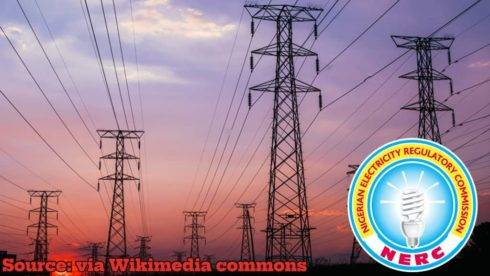The Nigerian Electricity Regulatory Commission (NERC) has made a significant decision to raise electricity tariffs, impacting customers in the Band A category. This announcement, made during a press briefing in Abuja by the Vice Chairman of Nigerian Electricity Regulatory Commission (NERC), Musliu Oseni, marks a notable shift in pricing structure. The decision to implement this increase stems from various considerations, including the need for sustainable revenue generation to support infrastructural development within the electricity sector.
As a result of this adjustment, customers falling under the Band A category will now be required to pay N225 per kilowatt-hour, a significant jump from the previous rate of N66. This substantial increase is likely to provoke reactions from consumers, especially considering the potential impact on household budgets and overall cost of living.
Nigerian Electricity Regulatory Commission: Reduction in Band A Feeders and Customer Implications
In addition to announcing the rise in electricity tariffs, the NERC, Nigerian Electricity Regulatory Commission Vice Chairman highlighted a reduction in the number of feeders categorized as Band A. With the current count at 800, the decision aims to streamline operations and focus resources more efficiently. This reduction, which will bring the number of Band A feeders to under 500, reflects a strategic move by regulatory authorities to optimize service delivery and address operational challenges within the sector.
However, despite the reduction in Band A feeders, it’s important to note that these feeders cater to a significant portion of electricity consumers, servicing approximately 15 percent of total connected customers. Consequently, the impact of the tariff increase will be felt by a sizable portion of the consumer base, raising concerns about affordability and access to essential services.
Implications for Affordability and Consumer Welfare
The decision to raise electricity tariffs has sparked debates regarding its implications for consumer affordability and welfare. As households grapple with rising costs of living and economic uncertainties, any increase in essential service tariffs can place additional strain on already stretched budgets. Concerns have been raised about the potential for this tariff adjustment to exacerbate socio-economic inequalities, particularly among low-income households who may struggle to afford basic utilities.
Moreover, the timing of the tariff hike amid ongoing economic challenges and inflationary pressures adds further complexity to the situation. It remains to be seen how consumers will adapt to these changes and what measures will be implemented to mitigate the adverse effects on vulnerable segments of the population. Policymakers and regulatory authorities face the challenge of balancing the need for revenue generation with the imperative of ensuring equitable access to essential services.
Government Justification of the Nigerian Electricity Regulatory Commission and Policy Objectives
In justifying the decision of the Nigerian Electricity Regulatory Commission to raise electricity tariffs, government officials have cited the need for sustainable revenue generation to support infrastructural development and improve service delivery within the electricity sector. The move is part of broader efforts to address longstanding challenges, including inadequate investment, operational inefficiencies, and revenue losses plaguing the power industry.
Proponents of the tariff increase argue that it is essential for attracting private investment, fostering innovation, and modernizing infrastructure to meet growing demand for electricity. By incentivizing investors and improving the financial viability of electricity distribution companies, policymakers aim to create a more conducive environment for sustainable sectoral growth and development.
Consumer Advocacy and Opposition Responses
The announcement of the electricity tariff hike by the Nigerian Electricity Regulatory Commission has met with mixed reactions from consumer advocacy groups and opposition parties. Many stakeholders have expressed concern over the potential impact on consumer welfare and affordability, particularly for marginalized and low-income households. Critics argue that the tariff increase may further deepen poverty levels and widen socio-economic disparities, exacerbating existing challenges facing vulnerable segments of the population.
In response to the decision, consumer advocacy groups have called for greater transparency, accountability, and stakeholder engagement in the tariff-setting process. They advocate for measures to cushion the impact of the increase on consumers, such as targeted subsidies, tariff rebates, and social safety nets to protect the most vulnerable members of society.
Future Outlook and Regulatory Measures
The electricity sector faces ongoing challenges and uncertainties, compounded by the impacts of the tariff hike and broader economic dynamics. Regulatory authorities will need to closely monitor the implementation of the new tariff structure and its effects on consumers, market dynamics, and sectoral performance. Adaptive regulatory measures may be required to address emerging issues, mitigate adverse effects, and ensure that the objectives of affordability, accessibility, and sustainability are effectively balanced.
Moreover, policymakers must engage in continuous dialogue with stakeholders, including consumers, industry players, and civil society organizations, to foster consensus-driven decision-making and promote inclusive development within the electricity sector. Ultimately, the effectiveness of regulatory interventions and policy measures will be crucial in shaping the future trajectory of the Nigerian electricity market and its ability to meet the evolving needs of consumers and the broader economy.
Table of Contents
Discover more from OGM News NG
Subscribe to get the latest posts sent to your email.














